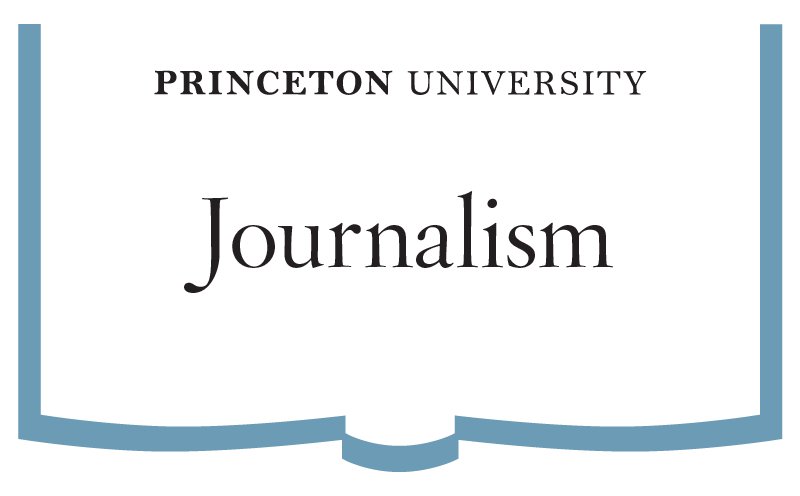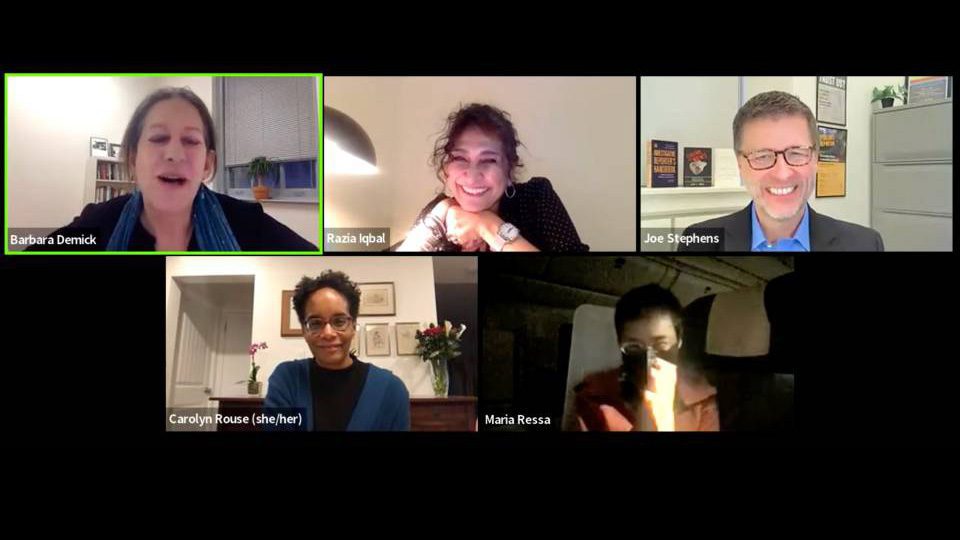On Thursday, February 16 the Humanities Council’s Program in Journalism hosted the virtual panel “Reporting on Repressive Governments: How journalists overcome barriers to safeguard free speech and inform democracy.”
The panel, which was moderated by Joe Stephens (Program in Journalism), discussed the important role that both journalists and scholars play in uncovering truth and informing citizens.
“The remedy to oppression in many cases comes down to fearless and unflinching reporting based on painstakingly verified facts,” said Stephens. “And this is accomplished from country to country by a small group of courageous, very dedicated journalists and academics who operate in the field at great personal risk.”
Journalist and 2021 Nobel Peace Prize winner Maria Ressa ’86 participated in the panel from her airplane seat on the way to Princeton University, after initially being prevented from leaving the Philippines. She joined visiting journalism professors Barbara Demick (author) and Razia Iqbal (BBC), and Carolyn Rouse (Anthropology).
The panelists spoke about the importance of ethics in journalism, technology as both a tool and an obstacle, media bias and the increasing threat of misinformation.
“Since 2018, studies have shown lies laced with anger and hate go further than facts. Just that statement alone shows you the problem,” said Ressa. “If lies become facts, what happens? No facts, no truth, no trust… when you have these conditions, no shared reality exists, no democracy can exist. That’s the descent to tyranny we are on globally.”
Chair of the Humanities Council Esther Schor (English) introduced the panel. The event was co-sponsored by the Office of Communications and the Department of Anthropology.
Watch the full event here.













